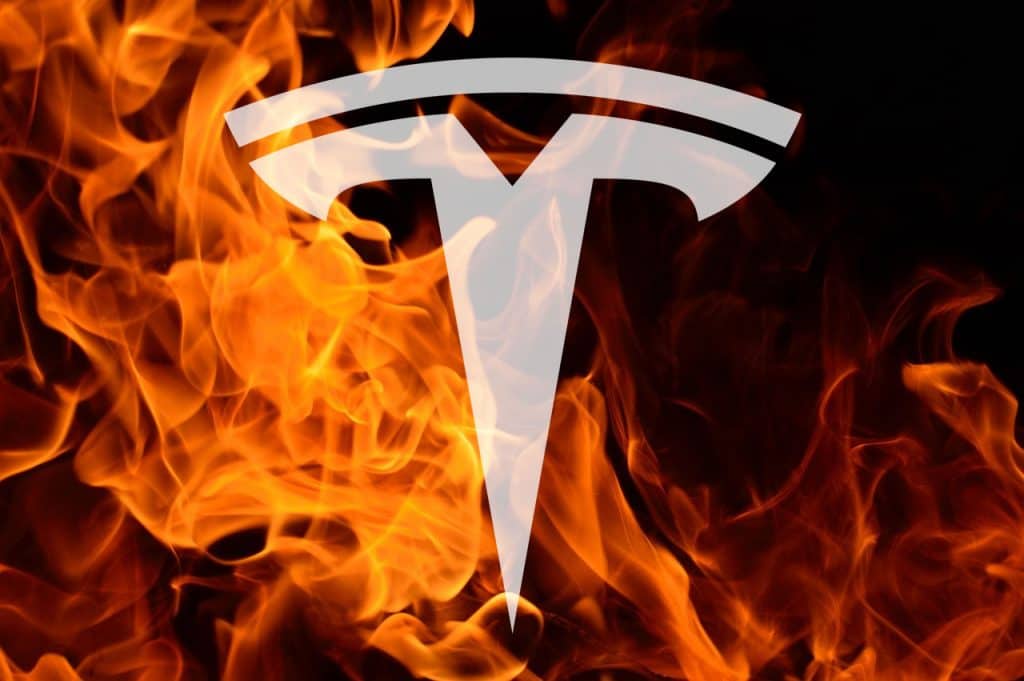Tesla is a company that has been revolutionizing the automotive industry with its sleek electric vehicles. However, like with any new technology, concerns about safety have been raised. One of the most common concerns is whether Tesla cars catch on fire easily.
The short answer is no, Tesla cars do not catch on fire easily. In fact, according to Tesla, their vehicles are less likely to catch on fire than gasoline-powered cars. In this article, we’ll explore why this is the case, and what steps Tesla has taken to ensure the safety of their vehicles.
First, it’s important to understand why gasoline-powered cars are more prone to catching fire than electric vehicles. Gasoline is a highly flammable liquid that can easily ignite when exposed to heat or sparks. In a gasoline-powered car, this fuel is stored in a tank under the vehicle, and is pumped into the engine where it is ignited to produce the power that drives the car.
Electric vehicles, on the other hand, do not use gasoline. Instead, they use lithium-ion batteries to store and deliver power to the electric motor. While lithium-ion batteries can also catch fire if damaged or improperly charged, they are generally considered to be safer than gasoline.
So why do we hear about Tesla cars catching on fire in the news? The answer is that, while Tesla cars are not more prone to catching fire than other electric vehicles, they do occasionally catch fire due to accidents or other causes.
One high-profile incident occurred in 2013, when a Tesla Model S caught fire after colliding with a metal object on the highway. The fire was caused by damage to the battery pack, which was punctured by the object. While the driver was able to safely exit the vehicle and no one was injured, the incident raised concerns about the safety of electric vehicles.
In response to this incident, Tesla implemented several changes to improve the safety of their vehicles. One of the most significant changes was the addition of a titanium underbody shield to protect the battery pack from damage. Tesla also added software updates to monitor the battery pack and alert drivers if any issues are detected.
Since these changes were implemented, there have been very few incidents of Tesla cars catching on fire. In fact, according to a report by the National Highway Traffic Safety Administration, Tesla vehicles are about 10 times less likely to catch fire than gasoline-powered cars.
Another factor that contributes to the safety of Tesla cars is their design. Electric vehicles have a simpler design than gasoline-powered cars, with fewer moving parts and no internal combustion engine. This means that there are fewer opportunities for things to go wrong and cause a fire.
Additionally, Tesla cars are designed with safety in mind. The battery pack is located under the car, which lowers the center of gravity and improves handling. The car’s structure is also designed to absorb and distribute impact energy in the event of a crash, which reduces the risk of a fire.
In conclusion, while Tesla cars do occasionally catch fire, they are not more prone to catching fire than gasoline-powered cars. In fact, they are generally considered to be safer. Tesla has implemented several changes to improve the safety of their vehicles, and their design and construction further reduce the risk of fire.
If you’re considering purchasing a Tesla, it’s important to understand the safety features and to follow all recommended safety guidelines. This includes regular maintenance, proper charging procedures, and following traffic laws and safety regulations.
Overall, while concerns about the safety of electric vehicles are understandable, Tesla cars are a safe and reliable option for drivers who are looking for a sleek and sustainable mode of transportation.

